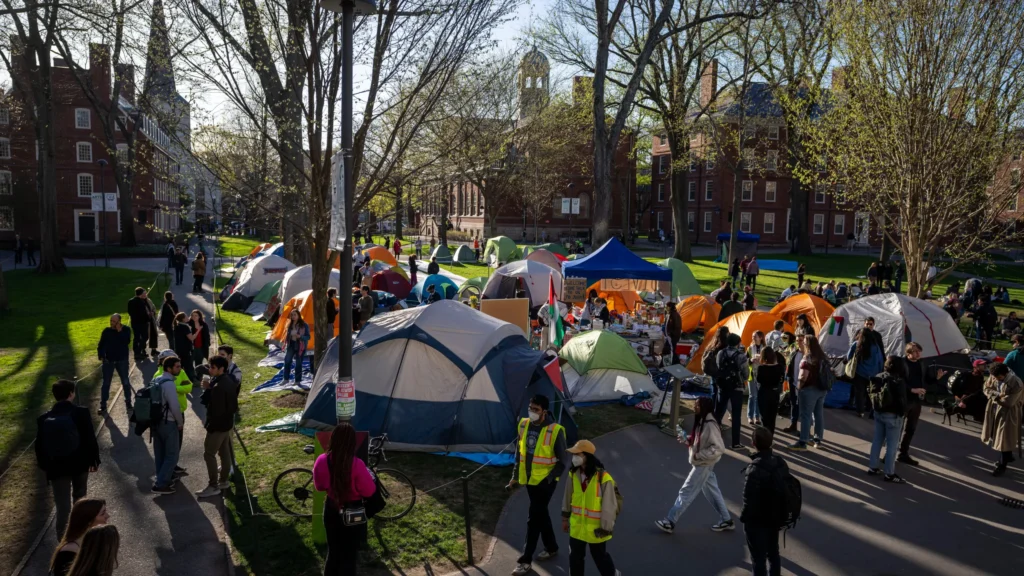Harvard University has declared it will not comply with sweeping demands from the Trump administration tied to its nationwide campaign against antisemitism putting nearly $9 billion in federal funding at risk.
In a letter sent Friday, the administration called on Harvard to implement a controversial set of reforms, including a ban on face masks at protests, “merit-based” hiring and admissions policies, and an audit of university views on diversity. The updated demands also require the school to withdraw recognition and funding from any student group accused of endorsing “illegal violence or harassment.”
Critics say the measures target pro-Palestinian student protesters, many of whom have participated in anti-war encampments opposing Israel’s military actions in Gaza.
Harvard Pushes Back
Harvard President Alan Garber issued a firm rebuttal on Monday, stating the demands infringe on the university’s First Amendment rights and “exceed the statutory limits of the government’s authority under Title VI,” which bars discrimination based on race, color, or national origin.
“No government — regardless of which party is in power — should dictate what private universities can teach, whom they can admit and hire, and which areas of study and inquiry they can pursue,” Garber wrote in a letter to the university community.
He added that Harvard has taken extensive steps to address antisemitism on campus, but those efforts “must not be driven by political coercion.”
Targeting Ivy League Institutions
The standoff is part of the Trump administration’s broader effort to use federal funding to pressure elite academic institutions. Funding has already been paused at Brown, Princeton, and the University of Pennsylvania, with Columbia University making changes under similar threats.
Harvard’s resistance comes amid rising tensions over free speech and political expression on U.S. campuses, particularly in relation to the war in Gaza.
“These sweeping yet indeterminate demands are not remedies,” read a lawsuit filed Friday by the American Association of University Professors, “but rather political tools used to impose the administration’s preferred policies.”
Protests and Legal Pushback
The university’s decision has sparked protests from students, Cambridge residents, and academic freedom groups. Over the weekend, Harvard Yard was once again filled with demonstrators demanding that the administration defend university autonomy and protect students’ rights to protest.
A group of Harvard alumni also issued a joint letter supporting the university’s stance.
“Harvard stood up today for the integrity, values, and freedoms that serve as the foundation of higher education,” said Anurima Bhargava, a former U.S. Justice Department civil rights official and alumna behind the letter.
The Bigger Picture
While President Trump claims the demands are designed to combat antisemitism, critics say they represent a dangerous overreach aimed at suppressing dissent and reshaping university policy in line with a political agenda.
Harvard now finds itself at the center of a national clash over the boundaries of federal power, free speech, and the future of higher education in the United States.
Whether it can withstand the financial and political pressure remains to be seen. But for now, it has sent a clear message: Academic freedom is not for sale.



